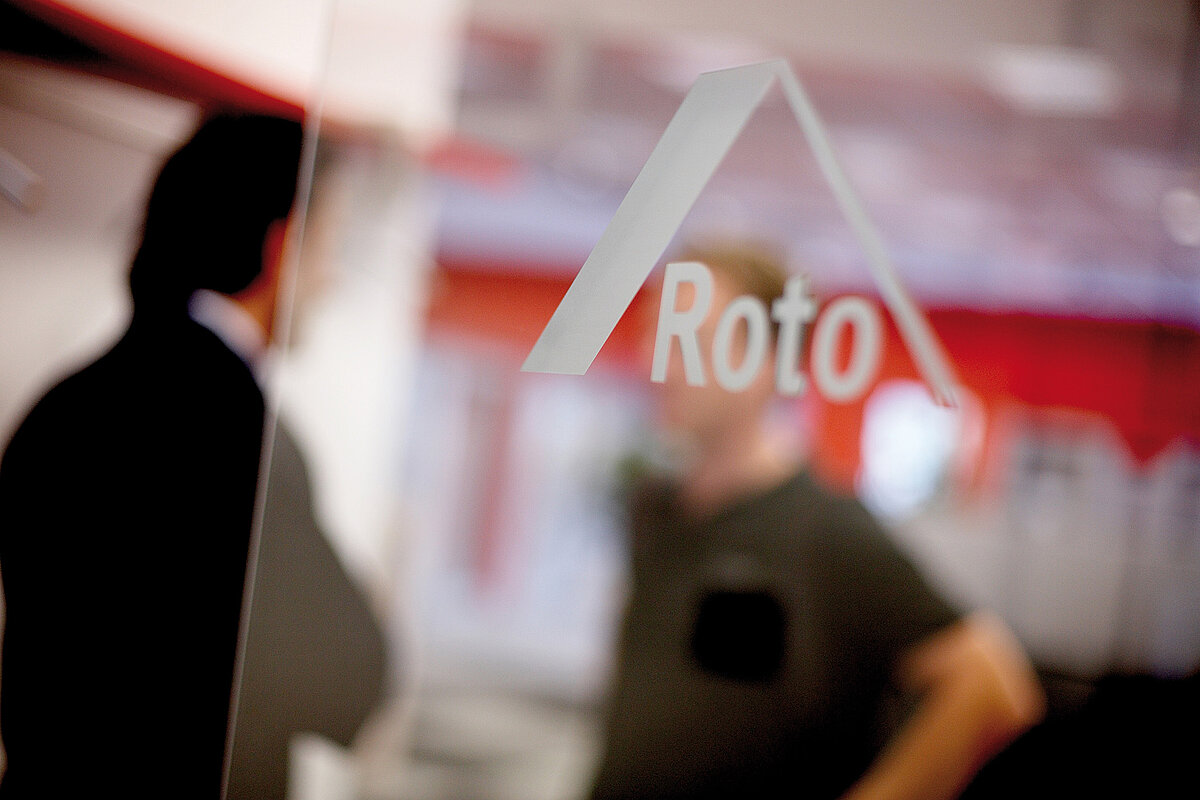Job offers
If you are interested in working at our company, please apply through the Roto job portal only and avoid sending paper applications.
We look forward to receiving your application!

FAQ on internships, internships for school pupils and final theses
1. How long does an internship at Roto usually last?
The duration of the internship can vary depending on the department. Most positions are compulsory internships with a minimum duration of three months and a maximum duration of six months. Alternatively, there is the option to complete a voluntary internship lasting from three to six months.
You can find more detailed information about the duration and type of internships from the relevant job advertisements in the Roto job portal.
2. Can I also submit a speculative application for an internship?
If you did not find any suitable positions out of the available internships advertised, you can also submit a speculative application. Please state the field you would like to work in and the possible time period.
3. Can I also complete an internship for school pupils at Roto?
The places for an internship for school pupils are limited. When submitting your application, please state the field you would like to work in and the possible time period.
4. How can I apply to write my final thesis at Roto?
If you would like to write a practice-based Bachelor or Master thesis, we look forward to reading your proposed topics for specific areas of the company. Ideally, you will combine your final thesis with an internship at Roto.
5. What application documents do you need from me?
Ideally a cover letter, your CV, your last three reports and documents about your social work, extracurricular activities and academic achievements as applicable.
FAQ on vocational training and dual studies courses
1. How far in advance should I apply?
Training usually begins every autumn. You should apply early, generally one year in advance. You can find the range of training courses on offer and their start dates from the current job advertisements.
2. What school-leaving qualification is required?
Various requirements must be met depending on the vocational training programme and course. You can find the specific requirements in the current job advertisements.
3. What application documents do you need from me?
Ideally a cover letter, your CV, your last three reports and documents about your social work, extracurricular activities and academic achievements as applicable.
4. When is the closing date for applications?
Usually the end of September or once all of the training places are full.
5. What is the selection process like?
The selection processes vary depending on the professional direction and may comprise, for example, assessment centres, aptitude tests, face-to-face interviews, trial work and internships. During the selection process, we will let you know about the next steps in good time.
6. What is an assessment centre at Roto like?
Our ACs last for one day. You complete a written part (approx. 3 hours) and a spoken part in the form of group work and presentations (approx. 4 hours). Between the written and spoken part, we go to our canteen to have lunch together.
7. What type of clothes should I wear to an assessment centre?
Neat and clean clothing; suits are not a must.
8. What is the interview like?
We would like to get to know you better and look forward to you telling us a little bit more about yourself. Of course, you will also find out more detailed information about training at Roto and any questions you have can be clarified.
9. What will my first few days of working at Roto be like?
On the first day of work, we start by presenting Roto, the training department, the apprentices and the students. You will get to know Roto and many processes. We spend days 2, 3 and 4 away from our company, at an outdoor education centre. Initial introductory training takes place in the two weeks that follow, so that you have all the information you need for a good start at the company.
10. Who are my contacts?
As training managers, it goes without saying that we are always available to answer any questions you may have. You will also have two mentors (apprentices and students from previous training years), who are always there for you to contact. In addition, our training officers will continue to help you in the individual processes and will support you in all matters.
11. How long is the probationary period and what does it mean exactly?
The probationary period for the apprentices is 4 months, and 3 months for dual studies students (practical phase).
The probationary period is the initial phase of an employment contract which is subject to particular regulations under labour law. The German Vocational Training Act (BBiG) lays down a mandatory probationary period for training programmes that form part of dual studies courses. Its duration must be noted in the training agreement.
What is different about the probationary period?
The probationary period is different because the company and apprentice/student can terminate the training at any time. There is no notice period, which means that termination has immediate effect. No reasons must be given for termination. Notice of termination must be given in writing.
Why is there a probationary period?
In general, the company and apprentice/student have the same aim: for the training to be completed successfully. In the probationary period, both sides can review once again whether this objective will be achieved together. Apprentices and students find out whether the occupation meets their requirements and how well they will be able to master the profession they have chosen. Employers note whether the apprentice/student integrates into the workforce and meets the basic requirements of the job.